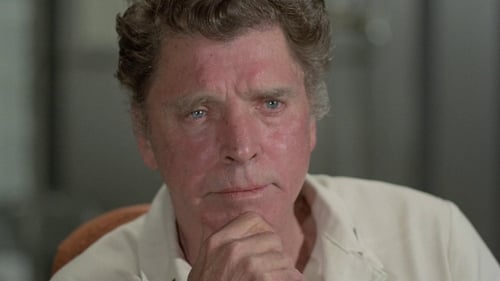Dieter Matzka
출생 : 1939-06-30, Znojmo, Czechoslovakia [now Czech Republic]
사망 : 2012-04-02

Camera Operator
Dennis, an American private eye, is sent to Germany to find out as much as possible about typical Germans and typically German behaviour. Disguised as a TV reporter he sets sail for Germany where we follow him interviewing a wide variety of people, from politicians and intellectuals to policemen, demonstrants and ordinary people in the street. All this, however, is not what the film is really about, for "Deckname Dennis" is actually a satirical documentary about all those extremely odd people, groups and societies whose attitudes and behaviour are far too outrageous for anybody to take seriously. Therefore ALL the documentary bits are real, i.e. the people really thought they were being interviewed by an American reporter, and so they gladly presented an insight into their beliefs, ideas and goals.

Director
Documentary film.

Director of Photography
New York, 1941. Shortly before his joint suicide with Lotte, Stefan Zweig meets up once more with his first wife Friderike in order to write his last work, "The world of yesterday". Flashback: farewells that anticipate something.

Director
New York, 1941. Shortly before his joint suicide with Lotte, Stefan Zweig meets up once more with his first wife Friderike in order to write his last work, "The world of yesterday". Flashback: farewells that anticipate something.

Producer
Since the spring of 1943 and during the national socialist regime, a branch of the Mauthausen concentration camp had been located in the Upper Austrian village of Zipf. The prisoners were forced to work in a factory in which the propellants for the "Wunderwaffe" (wonder weapon), the V2 rocket were tested. Most of the people who live in the vicinity of the former concentration camp deny this.
A documentary film which confronts a historic actuality with oral witnesses.

Editor
Since the spring of 1943 and during the national socialist regime, a branch of the Mauthausen concentration camp had been located in the Upper Austrian village of Zipf. The prisoners were forced to work in a factory in which the propellants for the "Wunderwaffe" (wonder weapon), the V2 rocket were tested. Most of the people who live in the vicinity of the former concentration camp deny this.
A documentary film which confronts a historic actuality with oral witnesses.

Director of Photography
Since the spring of 1943 and during the national socialist regime, a branch of the Mauthausen concentration camp had been located in the Upper Austrian village of Zipf. The prisoners were forced to work in a factory in which the propellants for the "Wunderwaffe" (wonder weapon), the V2 rocket were tested. Most of the people who live in the vicinity of the former concentration camp deny this.
A documentary film which confronts a historic actuality with oral witnesses.

Writer
Since the spring of 1943 and during the national socialist regime, a branch of the Mauthausen concentration camp had been located in the Upper Austrian village of Zipf. The prisoners were forced to work in a factory in which the propellants for the "Wunderwaffe" (wonder weapon), the V2 rocket were tested. Most of the people who live in the vicinity of the former concentration camp deny this.
A documentary film which confronts a historic actuality with oral witnesses.

Director
Since the spring of 1943 and during the national socialist regime, a branch of the Mauthausen concentration camp had been located in the Upper Austrian village of Zipf. The prisoners were forced to work in a factory in which the propellants for the "Wunderwaffe" (wonder weapon), the V2 rocket were tested. Most of the people who live in the vicinity of the former concentration camp deny this.
A documentary film which confronts a historic actuality with oral witnesses.

Director of Photography
A gentle and melancholic love story set before the ironically depicted background of the Austrian Post Office.

Cinematography
German film.

Camera Operator
1981년 11월의 어느 일요일. 누명을 쓰고 감옥에 갇힌 전 공군 장군 로렌스 델은 동조자들과 함께 군교도소를 탈출한 후 몬타나 근처 미사일 발사기지에 잠입한다. 발사장치가 있는 지하 격납고를 장악한 델은 1천만 달러의 돈과 에어포스 원을 요구하는 한편, 무엇보다 대통령이 직접 베트남 전쟁 발발 직후 작성된 비밀문서를 공개하지 않는다면 9개의 핵탄두를 발사시키겠다고 위협한다. 이 비밀문서에는 미국이 베트남전에서 이길 수 없다는 사실을 알면서도 소련에 대한 우위를 입증하기 위해 참전했다는 사실이 기록되어 있다. 델의 요구를 들은 매켄지 장군과 대통령은 제3차대전이 일어날 수도 있는 상황을 저지하기 위해 특공대를 기지에 파견한다.

Director of Photography
A young textile worker attempts to reunite with his love and is shot by border guards. A semi-documentarian movie with a strong pacifist message.

Director of Photography

Camera Operator
This spectacular opera film was taped in 1967 and is based on the 1966 Salzburg Festival production directed by Herbert von Karajan himself, who also conducts the fabulous Vienna Philharmonic Orchestra. The production features the three greatest exponents of their respective roles at the time: Grace Bumbry’s magnificently seductive-toned Carmen, Mirella Freni’s ineffably lovely, touching Micaëla and Jon Vickers’s thrillingly manic-depressive Don José. On its release the film was hailed by Die Presse, (Vienna) as a “unique artistic event”, while Le Monde felt that Karajan’s production brought “a whole new dimension” to the opera, “combined with a magisterial interpretation”. A classical and utterly dramatic approach to probably the world's most beloved opera – Karajan’s Carmen is as much a delicacy for opera fans as it is a perfect starter for newcomers.











